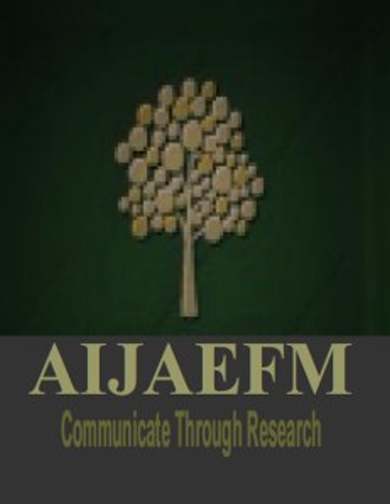Assessment Of Household Water Demand And Supply Situation In Damaturu Metropolis, Yobe State-Nigeria: A Quest For A Sustainable Water Security Solution
Keywords:
Water, Tobit regression, sustainable SolutionAbstract
Access to safe water which was declared as a fundamental human right by the United Nations General Assembly in the year 2000 that was expected to derive economic growth, reduce poverty, improves health security and indeed environmental sustainability. But as population, urbanization, industrialization and climate change severity increase, the underlying challenges facing most municipal authorities particularly in the underdeveloped and developing countries have also increased in scope, complexity and intensity. This is evident in the United Nation (UN) report that about 785 million people lack access to basic drinking water service and at least 2 billion people use a drinking water source contaminated with feces which further cause water borne disease such as cholera, diarrhea, typhoid, hepatitis, among others. Empirical evidence within the study area suggests that total water demand in Damaturu metropolis as at January, 2024 was 900 million litres per day (mld) and the available supply was just 250 mld. The difference stood at 650 mld as deficit. The study, deployed a blend of three theories- the Theory of Planned Behaviour (TPB), Time allocation, Cost-benefit analysis and utility maximization theories have been identified and adopted as the analytical framework for the study. A case study approach using mixed method research resign was used as the main methodology for the study. The quantitative data was analyzed using STATA version 17 of the both descriptive statistics data summary and estimation of Tobit or logistic regression models. Also, Nvivo and ATLAS-TI software was used for the analysis of the qualitative data. The finding revealed that most of the respondents (85.22%) relied on informal water vendors as the major source of water for domestic consumption. Furthermore, significant percentage (91.44%) of the respondents expressed willingness to pay for the improved water supply system and reported the sum ₦3,119.51K equivalent to $2.51 as mean willingness to pay per week. The Tobit regression result identified household income spent on water, average daily quantity of water consumed by household, and average income of head of household were found to be statistically significant in influencing households’ willingness to pay for improved private sector water supply within the study area. The need for more investment by organized private sector through Public Private Partnership PPP in the water industry, among others was recommended.





